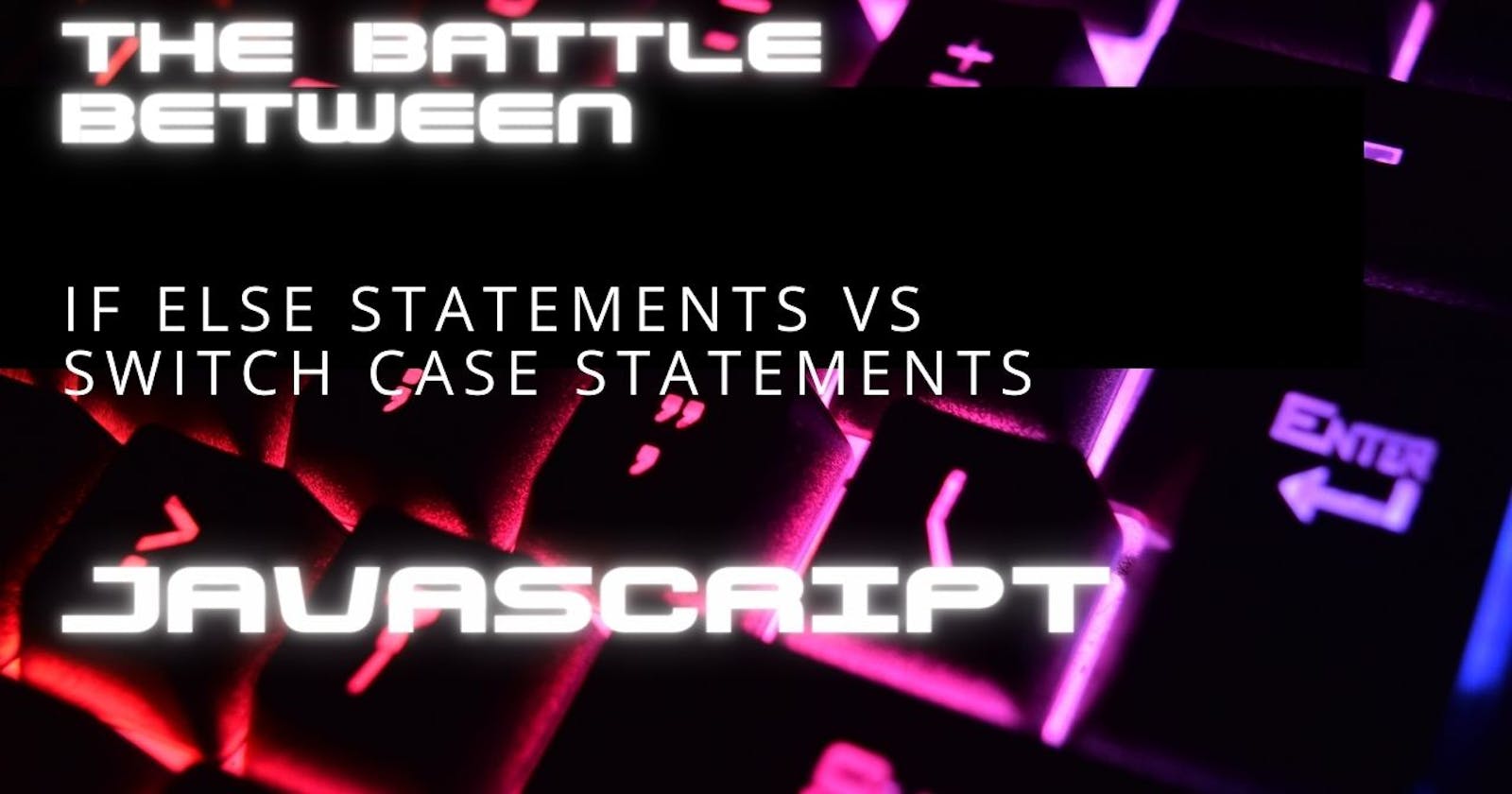JavaScript Programming: Which Control Structure is Better for Performance - if-else or switch Statements?
what are conditional statements?
Conditional statements are simply a set of statements that are used to simulate the human’s ability to make decisions and perform actions based on the decision made.
Conditional statements are essential in programming as they aid the programmers to run codes based on a set of conditions set.
Two main conditional statements used in JavaScript:
If else statements.
Switch case statements.
Let’s dig into each of the conditional statements and understand each of their roles and how to include them in our code;
If Else STATEMENTS.
The if-else statements are used in JavaScript when executing lines of code that depend on the specified condition if it was SATISFIED OR NOT SATISFIED.
The IF; is used to execute a block of code if a certain condition is true. If the condition is not true, the code inside the else block is executed instead. As shown;
let x = 10;
if (x > 5) {
console.log("x is greater than 5");
} else {
console.log("x is less than or equal to 5");
}
SWITCH CASE STATEMENTS
Switch/case statements in JavaScript are similar to if/else statements, but they are used when there are multiple possible conditions to test. The switch statement evaluates an expression and compares it to one or more cases. If a case matches, the code inside that case block is executed. Here is an example:
let day = 3;
switch (day) {
case 1:
console.log("Monday");
break;
case 2:
console.log("Tuesday");
break;
case 3:
console.log("Wednesday");
break;
default:
console.log("Invalid day");
break;
}
Differences between the IF/ELSE and SWITCH/CASE statements.**
One major difference between if/else statements and switch/case statements is that if/else statements can handle any condition that can be expressed as a Boolean expression, while switch/case statements can only handle conditions that can be expressed as a value.
Additionally, switch/case statements can often be more efficient than if/else statements when there are many possible conditions to test since the JavaScript engine can use a jump table to quickly find the correct code block to execute.
Overall, the choice between if/else statements and switch/case statements depend on the specific requirements of the code being written.
Developers should choose the option that is most appropriate for their particular situation.

